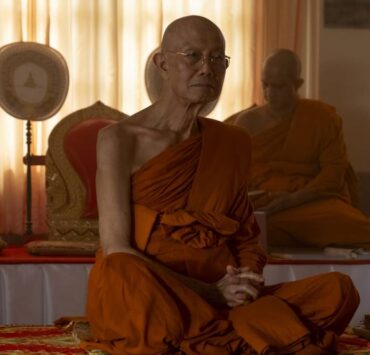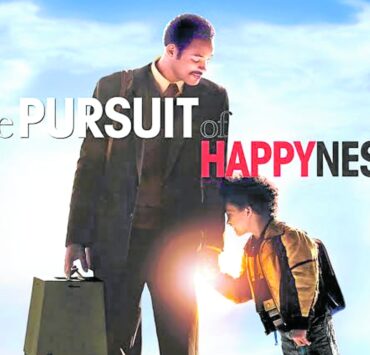Tubbataha’s ‘Mama Ranger’ keeps on winning
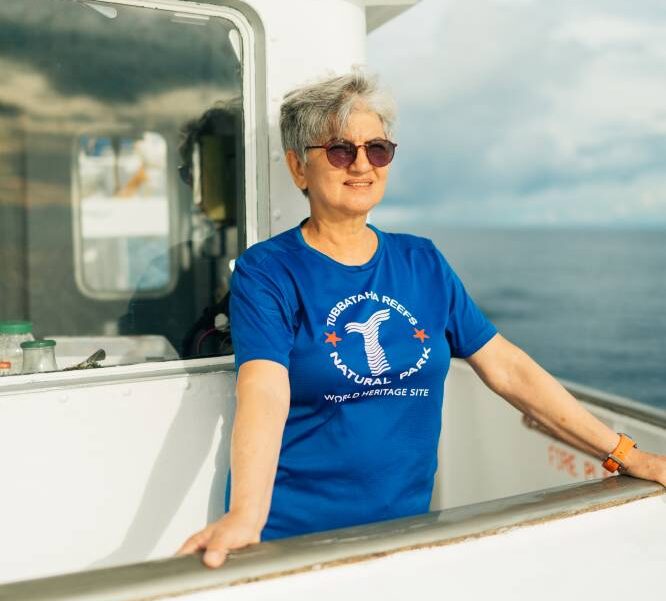
“An out-of-body experience” is how Angelique Songco, protected area superintendent (Pasu) of the Tubbataha Reefs Natural Park, describes being in Washington, DC, as one of eight recipients of the International Women of Courage Awards.
Last April 1, Songco stood between America’s first lady Melania Trump and Secretary of State Marco Rubio to receive an honor that has been given to some 190 women from 90 countries since 2007, when the award was begun by then Secretary Condoleezza Rice. Songco is only the second awardee from the Philippines in 18 years. (The first was former Isabela governor and Ramon Magsaysay Awardee Grace Padaca, who was in the initial batch.)
“Matindi ang impostor syndrome ko,” Songco says with a laugh. For one thing, she almost didn’t believe it when somebody from the United States Embassy in Manila called to tell her of the nomination, and assumed they had made a mistake. It was only when she was called by a “very proud” Ambassador MaryKay Carlson (the diplomat admitted as much) that Songco realized it was true; the Embassy had actually been sending different nominations for a while, and hers had been accepted.
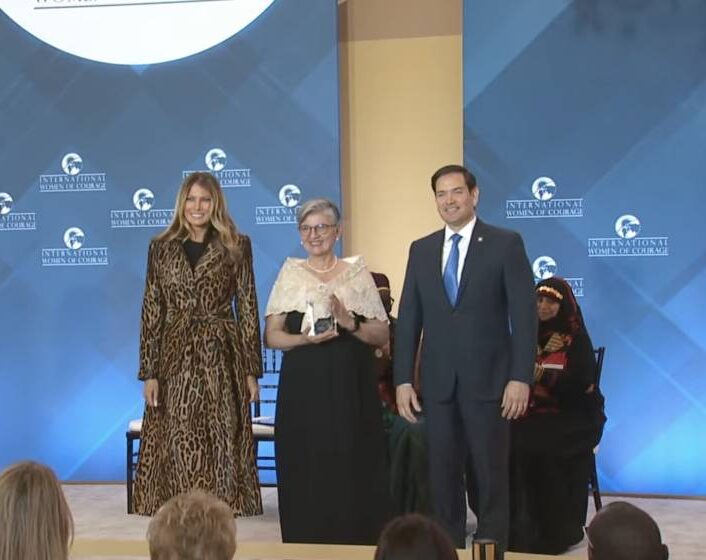
For another, she was the only woman in the batch working in marine conservation. “They were all fighting against something—slavery, child abuse. I guess I was the only one working to maintain something! Parang, everyone was so sad in their respective fields, I was actually crying more than they were when they talked about it. It was mind-boggling for me to learn that things like slavery are still happening now, at this scale.”
When it finally sank in—and the much-delayed trip to Washington pushed through, when it was originally meant to happen in March, Women’s Month—Songco admits she was also “very happy. For the first time, they gave an award for conservation, they’re recognizing that there are women working in conservation, and that it is globally important.”
24/7
Songco talked about her work with the winners from Israel, Romania, Burkina Fasso, Papua New Guinea, South Sudan, Sri Lanka, and Yemen, even if some of them who had very little experience with oceans and bodies of water probably couldn’t relate. “I brought up marine debris and pointed out to some women carrying plastic water bottles, ‘That would be illegal in my Park.’”
Indeed, Tubbataha has, in many ways, been “my Park” for Songco since she took on the role of Pasu in 2001, Tubbataha’s first—and only, so far—Mama Ranger, as she is called. Songco heads the Tubbataha Management Office (TMO) and leads a team of park rangers who watch over the reefs in the middle of the Sulu Sea all year round, 24/7. In her almost 25 years on the job, Songco has led law enforcement and scientific study in the reefs to maintain their stature as one of the most effective no-take marine protected areas (MPAs) in the world. Tubbataha is mainly supported by the dive tourism that takes place four months a year, with visitors paying an entrance fee.
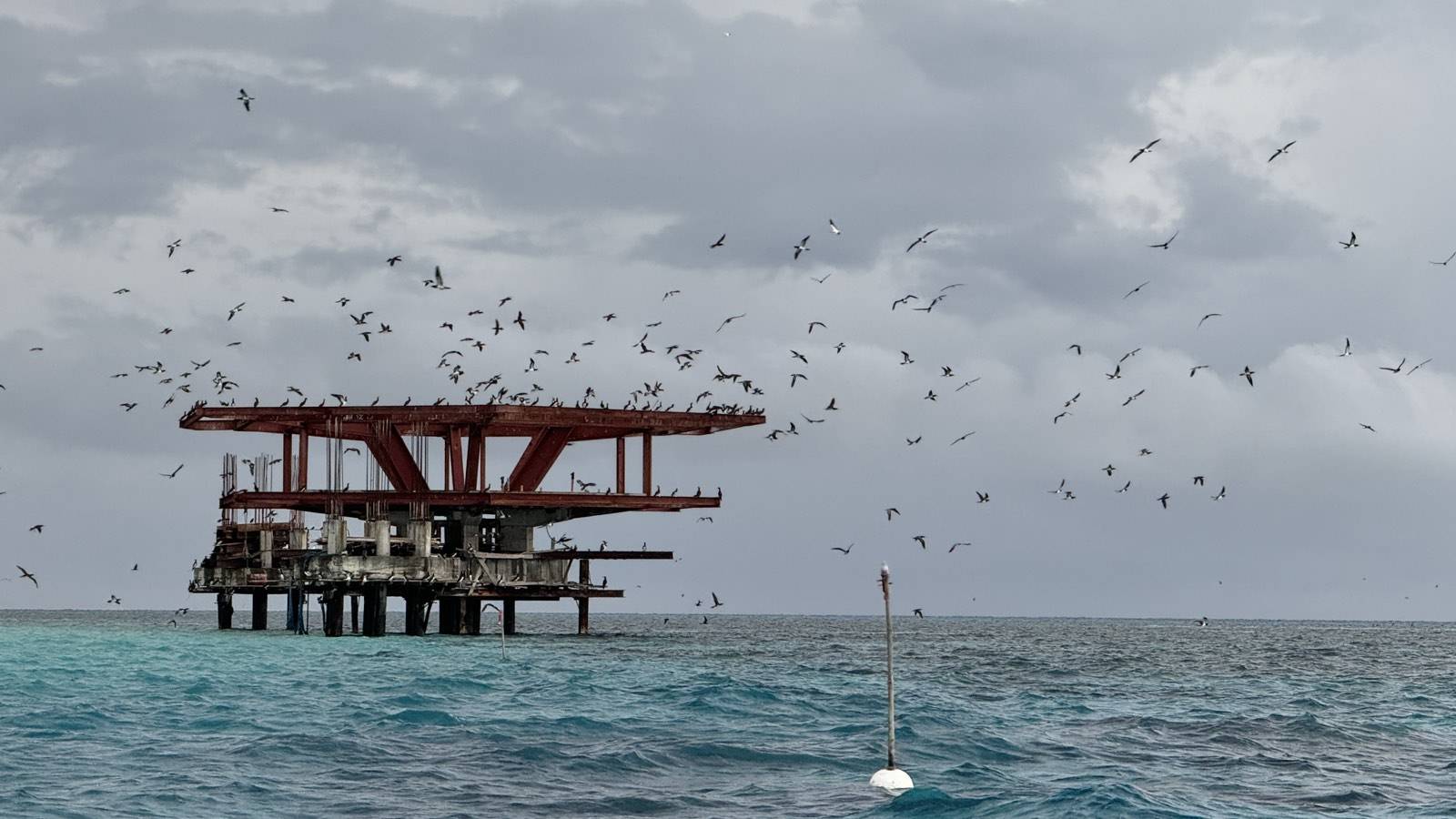
How well have they done their job? Between 2007 and 2010, the TMO filed almost 500 cases against illegal fishers, who probably just got tired of getting caught because “they knew tutuluyan namin sila (we’d see the charges through),” Songco said. In the last decade, by contrast, the grand total of illegal fishers caught was—count them—five. Even politicians whose names were dropped by the apprehended prefer to keep away from the case. “If it’s Tubbataha, we can’t help you,” they say. Maybe because Mama Ranger doesn’t back down.
Consider these: Tubbataha became a Unesco World Heritage Site back in 1993, and a Ramsar Wetland of International Importance in 1999. Under the TMO, it has become a flagship site of the Coral Triangle Marine Protected Area System as well as an Association of Southeast Asian Nations Heritage Park, both in 2014.
In 2015, Tubbataha was recognized as one of three Flyway Network Sites in the Philippines under the East Asian-Australasian Flyway Partnership, which protects endangered migratory waterbirds and their critical habitats. In 2017, the Park was declared a Particularly Sensitive Sea Area by the International Maritime Organization, as well as one of the first Platinum Global Ocean Refuge Systems (now known as Blue Parks) in the world.
Hope Spot
In 2022, Mission Blue, led by pioneering marine biologist and National Geographic oceanographer Dr. Sylvia Earle, designated Tubbataha as a Hope Spot, in recognition of its exceptional ecological value.
Songco, who will be up for retirement soon, is never one to rest on her laurels, however. Although she says she is happy the first minute she is in the water, this former military sergeant and dive professional, who was a dive instructor and dive master in Tubbataha in the 1980s before starting nongovernmental organization work, admits she still worries about her “baby.”
“I get scared and I think, are we not doing enough? Although we know it’s climate change and beyond our control, you still feel responsible. It’s like how you feel about your grown children.” (She has two, by the way, with husband Norman.)
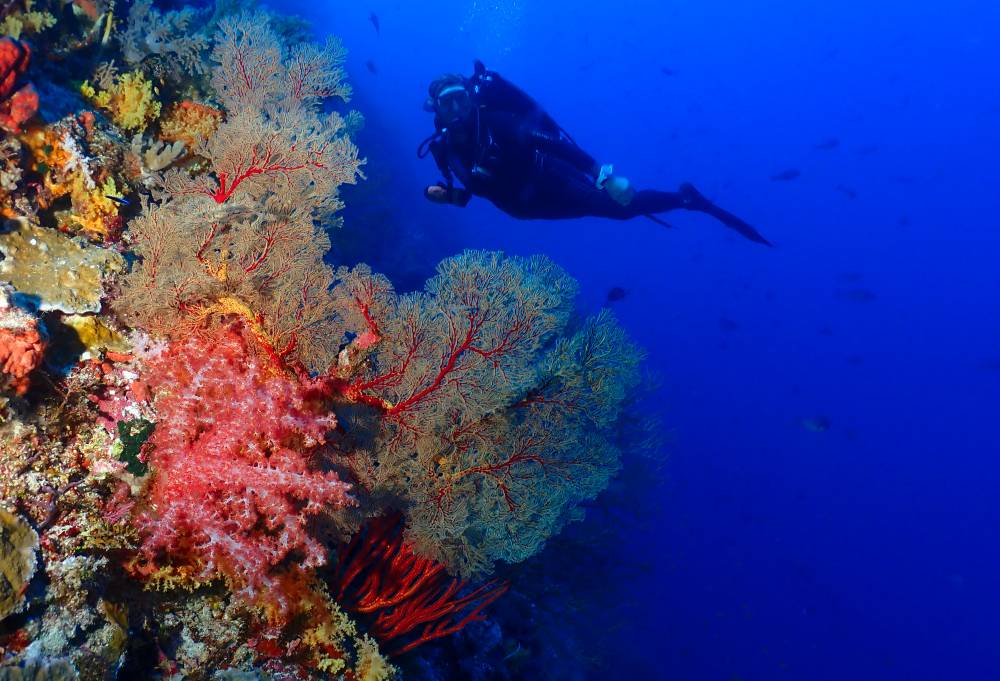
Still, Songco has invested much in training her team, from the TMO staff to her rangers, who know Tubbataha more than anybody else. “We were successful because the staff was dedicated. You know that the team believes in the same thing, and we’re all moving toward the same goal. You need people to be in love with the cause, for it to stretch and survive through the decades.”
Thus, continuity is not only important, but critical to Tubbataha’s survival. It should indeed be cared for by those who love it most, and not by just anyone who—as seen in many poorly managed MPAs—is more interested in money than generational legacy. “Somebody who has no knowledge of the history of the park, no understanding of what all these people in TMO are doing—it can hamper progress, ‘di ba?”
Continuity concerns Songco also because, believe it or not, nobody in TMO holds a regular government position—after 25 years of dedicating their lives to the country’s most important marine park.
Committed
There is something to look forward to on the horizon, however. The Department of Environment and Natural Resources has officially committed P76.5 million to finally complete the new Rangers’ Station, as the old station, first set up as a tent in 1996 and now a crumbling wood-and-cement structure, may be on its last legs.
There’s also P30 million from the Tourism Infrastructure and Enterprise Zone Authority, and P20 million from the office of former senator and now Makati Mayor Nancy Binay. But before you think that’s a lot of money, remember that you are constructing something in the middle of the sea; just getting the materials out there costs millions.
In the meantime, Mama Ranger is soldiering on with her team. She frets over the erosion of the islet where a lighthouse stands, and where she will find the money to rebuild the beach. She worries about the coral-killing Drupella snails, and actually handpicks them off the reef with her “Drupella slayer” kit of long tweezers and a mesh bag. On every dive, she counts individuals of a species with her hands (“That was 37 Napoleon wrasse!”) and checks out the gigantic chains that hold mooring buoys in place.
“We all are all inspired to take care of Tubbataha, because we know that a reef can look like this,” she says. “All Philippine reefs must have looked like this before we destroyed them. And I feel that such beauty should be there for always.”














